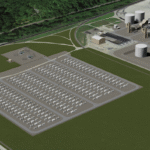The Importance of Energy Efficiency
Energy efficiency is not just a buzzword; it’s a crucial aspect of sustainable living. With the rising costs of energy consumption and its impact on the environment, it’s essential for homeowners to make their homes more energy-efficient. One way to do this is by obtaining an energy certification for their property.
What is Energy Certification?
Energy certification is a process that evaluates the energy efficiency of a building, typically a residential property. The evaluation is based on a set of standards and guidelines that assess various factors, such as insulation, windows, doors, and appliances. The goal is to identify areas where energy waste can be reduced or eliminated.
Benefits of Energy Certification
Obtaining an energy certification for your home has numerous benefits, including:
Cost Savings
Energy-efficient homes use less energy, which translates to lower energy bills. By identifying and addressing areas of energy waste, homeowners can significantly reduce their energy consumption, resulting in annual savings.
Increased Property Value
An energy-efficient home can increase its value. Potential buyers and renters are increasingly looking for energy-efficient properties, making it a desirable feature when considering a purchase or lease.
Reduced Carbon Footprint
Energy-efficient homes have a reduced impact on the environment. By reducing energy consumption, homeowners contribute to a cleaner, healthier planet for future generations.
How to Get Your Home Energy Certified
Gaining an energy certification for your home is a relatively simple process. Here’s a step-by-step guide:
Choose a Certification Program
There are various certification programs to choose from, such as the U.S. Department of Energy’s ENERGY STAR program or the LEED (Leadership in Energy and Environmental Design) certification. Consider factors like program requirements, costs, and level of recognition in your area.
Conduct an Energy Audit
Work with a certified energy auditor to conduct an assessment of your home’s energy efficiency. They will identify areas of energy waste and provide recommendations for improvements.
Implement Energy-Efficient Upgrades
Make the necessary upgrades to your home, such as installing new insulation, windows, and appliances, or upgrading to energy-efficient lighting.
Pursue Certification
Once the upgrades are complete, submit your application for certification to the chosen program. The program administrators will review your application and conduct a final audit to verify the efficiency improvements.
Conclusion
In conclusion, energy certification is a vital step towards creating a more sustainable future for homeowners. By reducing energy consumption, increasing property value, and decreasing one’s carbon footprint, an energy-efficient home is a worthwhile investment. With the guidance provided in this article, homeowners can look forward to a more efficient, cost-effective, and environmentally friendly living space.
FAQs
Q: What is the cost of energy certification?
A: The cost of energy certification varies depending on the program, location, and scope of the project. Typically, energy audits and certification can range from $500 to $3,000 or more.
Q: Can I get energy certified as a renter?
A: Yes, some energy certification programs, like the ENERGY STAR program, offer certification for renters. However, many programs are designed for homeowners.
Q: Can I get financial incentives for energy-efficient upgrades?
A: Yes, there are various incentives available, such as government rebates, tax credits, and low-interest loans. These incentives can help offset the cost of energy-efficient upgrades.
Q: How long does the energy certification process take?
A: The process can take anywhere from a few weeks to several months, depending on the complexity of the project and the program. It’s recommended to allow for a minimum of 6-12 months for the entire process.
Q: What is the maintenance required for an energy-efficient home?
A: Regular maintenance is crucial to ensure the efficiency of your energy-efficient home. This includes tasks like inspecting and cleaning appliances, replacing filters, and adjusting thermostat settings.
Note: The above content is for general information purposes only and should not be considered as professional advice. It is recommended to consult with a qualified professional for your specific situation.


.png?w=150&resize=150,150&ssl=1)



.png?w=150&resize=150,150&ssl=1)
